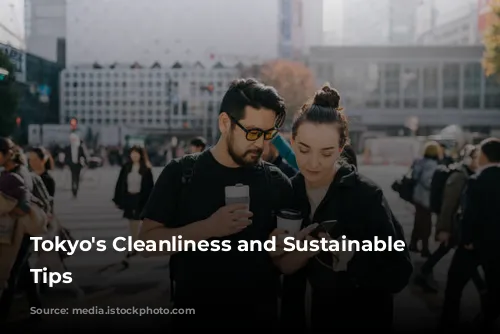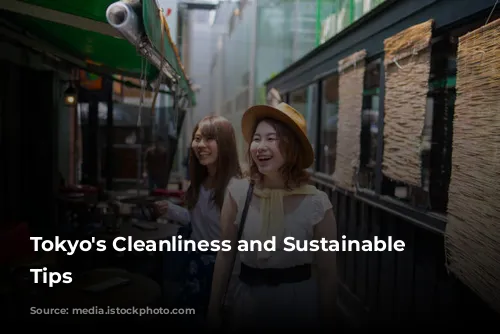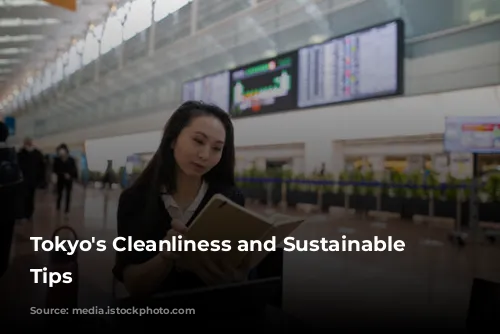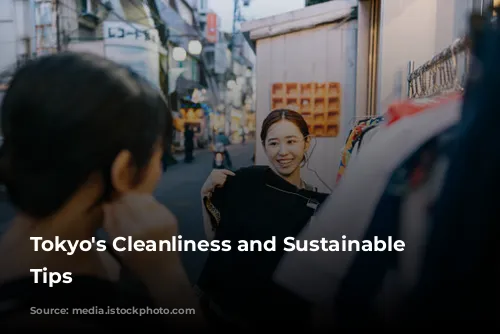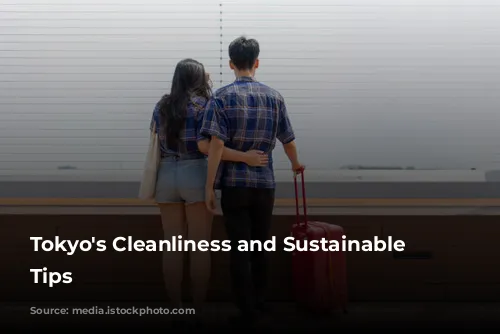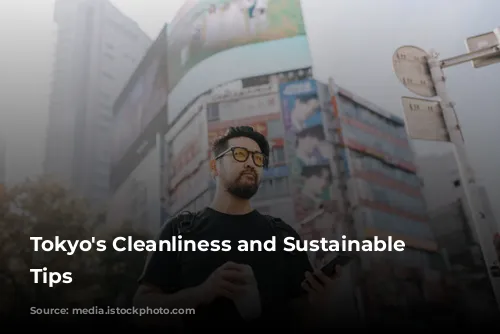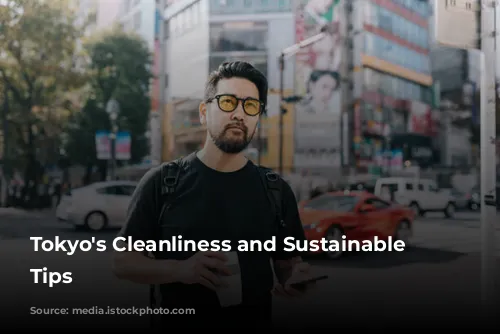Tokyo, despite its immense population and limited land, is a shining example of cleanliness and care. It’s rare to see litter in the city, thanks to the Japanese culture of waste segregation. From a young age, Japanese people are taught the importance of recycling, and this is reflected in their daily lives. As a visitor, you can contribute to this eco-conscious environment by disposing of your trash properly in designated bins found in parks, stations, and public spaces.

Making Sustainable Choices in Tokyo
There are various ways to minimize your environmental impact while exploring Tokyo. When shopping, decline extra packaging to avoid unnecessary waste. Carry your own chopsticks, especially when dining at budget-friendly establishments, as they often use disposable utensils. In hotels, reuse towels and sheets to reduce water and energy consumption. And lastly, embrace public transportation over taxis for a more sustainable and efficient way to navigate the city.

Public Transportation and Eco-Friendly Vehicles
Fortunately, Tokyo has a robust and efficient public transportation system, making car ownership less common. This green transportation is a major factor in the city’s eco-friendly profile. Furthermore, Japan has a long history of promoting hybrid vehicles, with companies like Toyota and Honda leading the way with models like the Prius and Insight, respectively. The Insight, in particular, holds the top spot as the best-selling car in Japan.
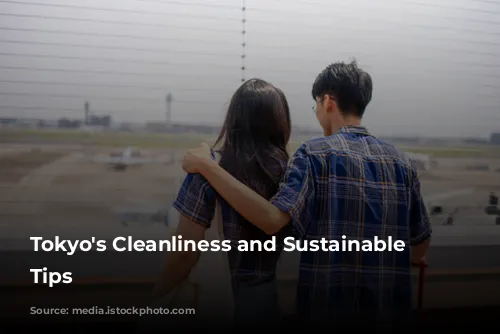
Online Resources for Sustainable Travel in Japan
For a deeper dive into sustainability initiatives and grassroots organizations in Japan, visit www.greenz.jp. This website is a treasure trove of information and a platform for engaging with the eco-conscious community in the country.
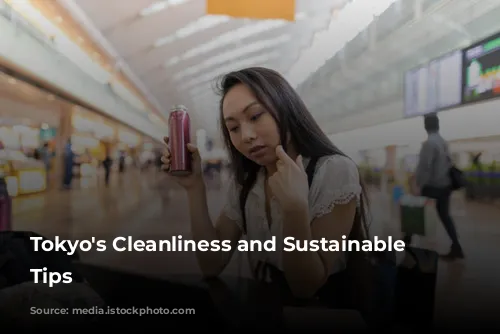
Worldwide Resources for Sustainable Travel
Beyond Tokyo, a plethora of online resources are available to guide you on your journey towards sustainable travel.
Responsible Travel (www.responsibletravel.com), led by a vocal advocate for ethical tourism, offers insightful tips and ideas for responsible travel. Sustainable Travel International (www.sustainabletravelinternational.org) promotes ethical tourism practices and maintains a comprehensive directory of environmentally conscious accommodations and tour operators globally.
Tourism Concern (www.tourismconcern.org.uk) in the U.K. is dedicated to reducing the negative social and environmental impact of tourism. The Association of Independent Tour Operators (AITO; www.aito.co.uk), a collective of specialized operators, champions sustainable tourism practices.
Greenlivingonline.com in Canada provides a wealth of information on sustainable travel, including a dedicated section on travel and transport, as well as profiles of eco-friendly businesses in Toronto, Vancouver, and Calgary.
In Australia, Ecotourism Australia (www.ecotourism.org.au) sets standards and guidelines for ecotourism. The Green Directory (www.thegreendirectory.com.au), Green Pages (www.thegreenpages.com.au), and Eco Directory (www.ecodirectory.com.au) offer eco-travel tips and directories of green businesses.
Carbonfund (www.carbonfund.org), TerraPass (www.terrapass.org), and Carbon Neutral (www.carbonneutral.org) provide information on carbon offsetting, a way to compensate for greenhouse gas emissions from air travel.
Greenhotels (www.greenhotels.com) recommends eco-friendly hotels around the world that meet their strict environmental standards. While there may not be any member hotels in Japan, the website outlines the criteria for being a green hotel. Environmentally Friendly Hotels (www.environmentallyfriendlyhotels.com) offers a more extensive list of green accommodations, including three in Tokyo.
Volunteer International (www.volunteerinternational.org) provides helpful questions to assess the intentions and nature of volunteer programs. For general information on volunteer travel, including opportunities in Japan, visit www.volunteerabroad.com/Japan.cfm.
Note: Please confirm all rates and details directly with the companies mentioned before finalizing your travel plans, as information is subject to change.
